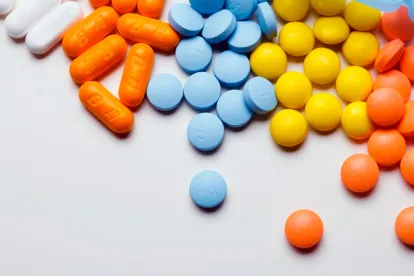On 9 July 2014, the European Commission’s Directorate General for Competition imposed fines totalling € 427.7 million on innovative pharmaceutical company Servier and generic companies Niche/Unichem, Matrix (now Mylan), Teva, Krka and Lupin. The Commission’s decision was the result of proceedings opened in 2009 and follows a Statement of Objections sent to the parties involved in 2012, accusing Servier of abusing its dominant position in the market of antihypertensive medicines and entering into anticompetitive agreements with generic competitors. According to the Commission’s decision, Servier aimed to prevent entry into the market of cheaper versions of Servier’s blockbuster drug perindopril.
The Servier investigation was a new case in the long series of Commission investigations into the pharmaceutical sector, which started in essence with the Commission’s Competition Inquiry into the Pharmaceutical Sector (Sector Inquiry). The 2009 Final Report of the Sector Inquiry revealed practices that could have an impact on generic competition in the pharmaceutical market and initiated a monitoring exercise by the Commission of anticompetitive patent settlements. The Commission concluded four monitoring exercises, covering the periods from mid 2008 – end 2009, 2010, 2011 and 2012. The latest monitoring has shown that the number of patent settlements is increasing but the number of potentially problematic agreements from an antitrust perspective is low. In the period after the Sector Inquiry, the Commission sanctioned pharmaceutical companies for anticompetitive patent settlements in two major instances, i.e., the citalopram and the fentanyl decisions of 2013.
In the latest case, perindopril was Servier’s bestselling medicine and there was no other blood pressure control product that managed to exercise competitive pressure on perindopril’s market share and prices. After the perindopril molecule patent expired in 2003, Servier could only protect it based on secondary, process and form, patents. However, these patents only offered limited protection and generic companies prepared their entry into the market, either through patent-free alternatives or by introducing litigation against Servier’s patents.
The Commission found in its decision that Servier resorted to two strategies in order to protect its product against the upcoming generic threat:
-
It acquired in 2004 the source closest to offering generics an alternative, non-protected technology, thus forcing them to freeze their projects and their market entry. The Commission found that Servier never exploited this technology and quoted Servier as admitting that it was using the acquisition only to “strengthen the defence mechanism.”
-
Between 2005 and 2007, Servier entered into settlement agreements with competing generic companies that were challenging its patents. According to the Commission, these were not legitimate litigation settlements because the purpose behind them was to keep generic competitors off the market by offering them a portion of perindopril profits. The Commission even quotes correspondence from companies acknowledging this fact (e.g., having been “bought out of perindopril”). In one of the settlements, a generic company obtained a licence from Servier for some Member State markets in exchange for staying away from the rest.
The Commission found that, in engaging in these practices, Servier abused its dominant position in the relevant product market in breach of Article 102 of the Treaty on the Functioning of the European Union (TFEU). Although it admits the legitimacy of obtaining and enforcing secondary patents as well as settling patent litigation, the Commission considers that companies misuse these rights if they aim to exclude competition on the merits.
Also, the settlement agreements between (potential) competitor undertakings infringed Article 101 TFEU. This provision prohibits anticompetitive agreements that prevent or restrict competition and may affect trade between Member States.
The Commission found that both sorts of anticompetitive practices prevented perindopril prices from reducing, which would be the effect of generic competition. The extension of high prices harmed patients, statutory payers (public health funds) and eventually taxpayers.
The Commission imposed fines on the companies involved on the basis of its 2006 Guidelines on the method of setting fines, taking into account both the duration and the gravity of infringements. It also reminded consumers (patients and payers) that any person or entity affected by an anticompetitive behaviour may rely on the Commission’s decision to seek damages before national courts (see also the proposal for a Directive on rules governing actions for damages under national law for competition infringements,adopted by the European Parliament in April 2014 and awaiting final approval by the Council of the European Union).
This case is yet another reminder that innovative pharmaceutical companies must be very careful when contemplating the settlement of patent litigation or other issues relating to the lifecycle of branded medicines.



 />i
/>i

